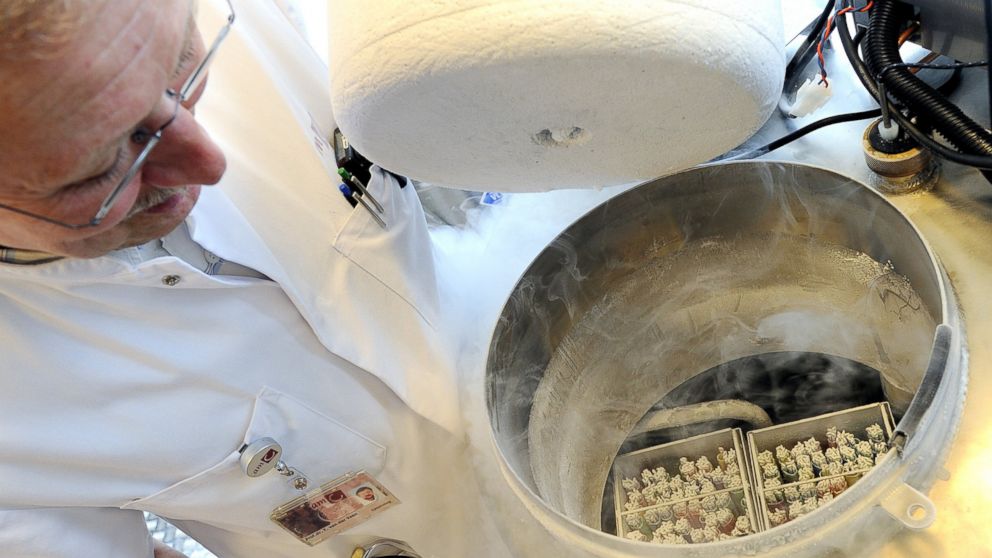Apple, Facebook Will Pay for Employees to Freeze Their Eggs
Apple, Facebook offer new perk to their employees.

— -- As enrollment for next year's health benefits goes on in work places around the United States, Apple and Facebook say they're willing to pay for employees to freeze their eggs.
Apple said it will offer the perk to employees based in the United States beginning on Jan. 1.
"We want to empower women at Apple to do the best work of their lives as they care for loved ones and raise their families," the company said in a statement to ABC News. "We continue to expand our benefits for women, with a new extended maternity leave policy, along with cryopreservation and egg storage as part of our extensive support for infertility treatments."
Apple said it also offers an adoption assistance program, where the company reimburses employees for eligible expenses related to the legal adoption of a child.
Facebook confirmed to ABC News that it began offering egg freezing to all employees covered under its Aetna insurance plans, including spouses and domestic partners, as of Jan. 1, 2014.
Given the lack of females in positions of leadership in Silicon Valley, it's possible the incentives could serve as a model to help both companies attract and retain top talent.
Apple revealed earlier this year in its diversity report that its workforce was 70 percent male, while Facebook reported its workforce was 69 percent male.
Glenn Cohen, a professor at Harvard Law School and an expert in the intersection of bioethics and law, said the perk could be perceived in several different lights.
"The good is that it empowers women and gives them more choices they might not have afforded otherwise," Cohen told ABC News. "The bad is it communicates a message to women that their workplaces may not be tolerant to women who decide to have children on the job and potentially also has more women undergoing a procedure that carries risks that they might not in the end need."
A woman's best reproductive years are in her 20s, according to the American Society for Reproductive Medicine. When a woman turns 30, her fertility begins to decline, making it more difficult to become pregnant after the age of 35, ASRM reported.
The process of storing eggs allows a woman to have them reinserted into her uterus at a later date -- even after her fertility has declined.
The American Society of Reproductive Medicine lifted the "experimental" label from the procedure in 2012.
ABC News' Zunaira Zaki contributed to this report.




